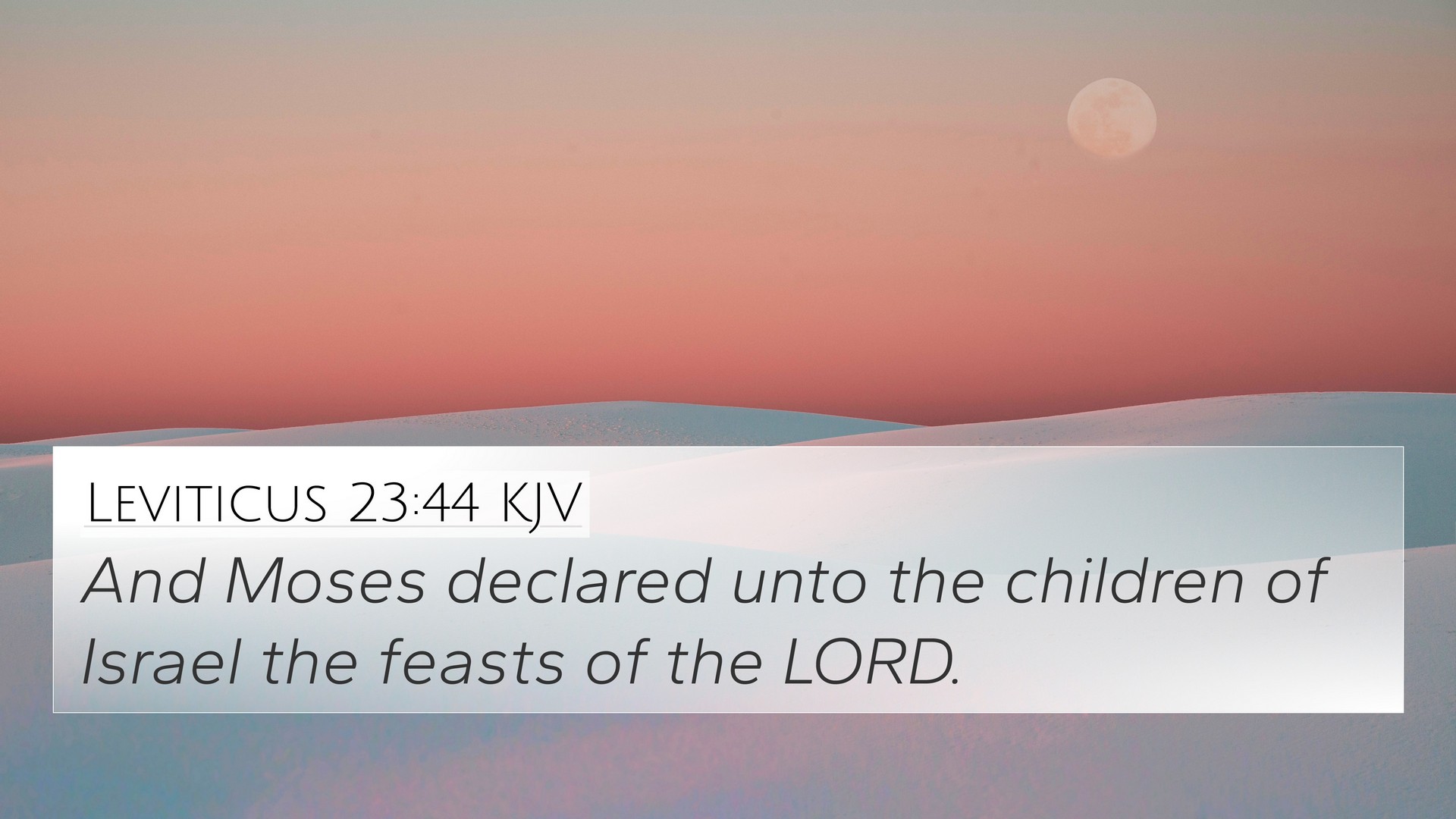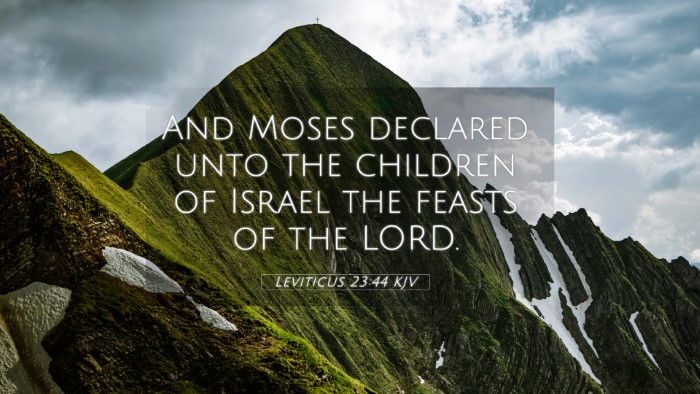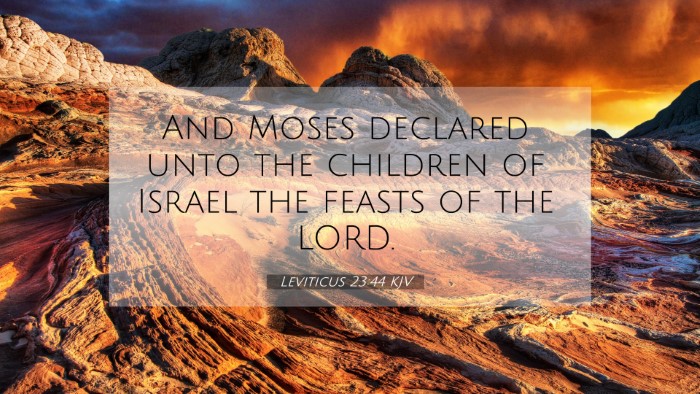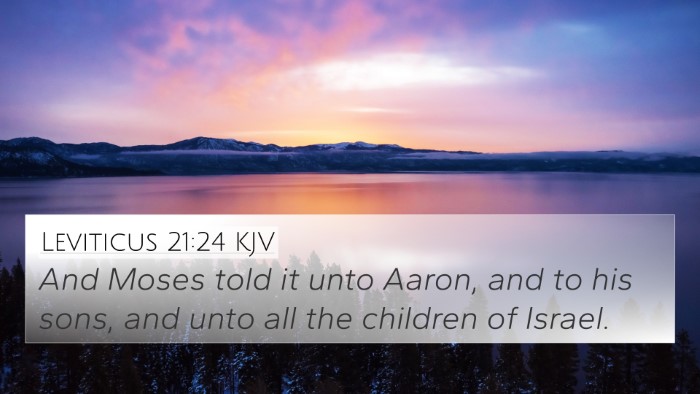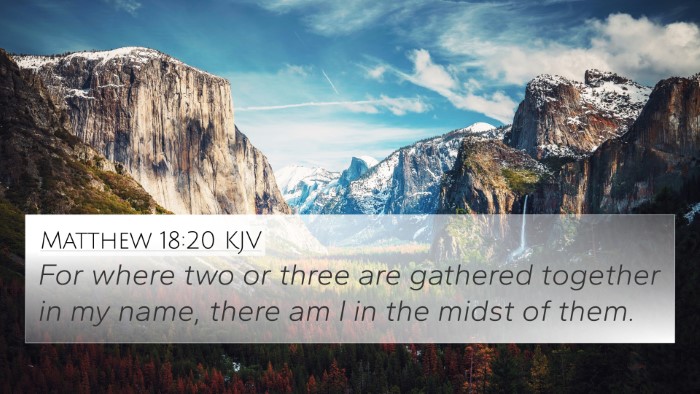Understanding Leviticus 23:44
Verse: "And Moses declared unto the children of Israel the feasts of the Lord." (Leviticus 23:44)
This verse serves as a conclusion to the detailed instructions regarding the feasts of the Lord, emphasizing the importance of these sacred occasions in the life of Israel.
Significance of Leviticus 23:44
Leviticus 23:44 encapsulates the essential nature of the religious calendar for the Israelites. The feasts mentioned are not mere celebrations; they serve as pivotal reminders of God's deliverance, provision, and covenant with His people. It highlights Moses' role as the mediator between God and Israel, ensuring that these important practices were communicated clearly.
Commentary Insights
-
Matthew Henry:
Henry emphasizes the instructive aspect of the feasts as a means to teach the people about their history and relationship with God. These feasts were a continual reminder of their identity and calling, allowing them to commemorate God's faithfulness.
-
Albert Barnes:
Barnes focuses on the formal declaration made by Moses. He notes that the feasts are designed to be observed 'in their seasons,' marking the times at which God intervened in their history. The public proclamation serves as a guide for future generations.
-
Adam Clarke:
Clarke discusses the ritualistic nature of these feasts and their role in fostering community among the Israelites. He sees the celebrations as opportunities for not just remembrance, but also for expressing communal faith and gratitude towards God.
Bible Verse Cross-References
Leviticus 23:44 connects with several key passages throughout the Bible. Here are notable cross-references:
- Exodus 12:14: Instructions concerning the Passover, establishing the significance of remembering God's deliverance.
- Deuteronomy 16:1-3: Directions about observing the Passover and the proper way to remember the Exodus.
- Leviticus 23:5-8: Discussion of the feasts of Passover and Unleavened Bread.
- Numbers 28:16-25: Details on the offerings associated with the Passover and other feasts.
- Psalms 122:1-3: Celebratory aspects of the feasts as a cause for rejoicing in communal worship.
- Matthew 26:17-19: Jesus' observance of the Last Supper, linked to the Passover feast.
- 1 Corinthians 5:7: Paul refers to Christ as our Passover lamb, showing continuity of the feast's significance.
Thematic Bible Verse Connections
This verse also relates to broader biblical themes such as:
- Remembrance: The importance of recalling God's past acts of salvation.
- Covenant: The reaffirmation of God’s covenant through communal acts of worship.
- Community: The feasts serve to strengthen communal ties among the people of Israel.
Tools for Bible Cross-Referencing
To delve deeper into the connections between Biblical texts, the following tools can be useful:
- Bible Concordance
- Cross-reference Bible Study Guides
- Bible reference resources for sermon preparation
Final Thoughts
In conclusion, Leviticus 23:44 is critical for understanding how the Israelites were instructed to observe and commemorate the works of God. The observance of these feasts contributes to a robust faith that recognizes historical providence while anticipating God's continual presence in their lives. Through the study of this and related verses, believers today can appreciate the depth of their faith traditions and the continuity of God’s redemptive work.
